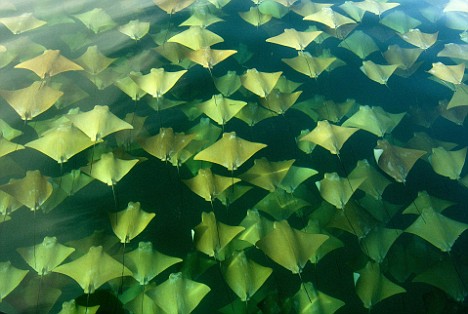Warming oceans lead to more marine migration, reproduction
 Scientists at CSIRO are reporting evidence that suggesting marine life spawns sooner and is moving to cooler areas as oceans become warmer.
Scientists at CSIRO are reporting evidence that suggesting marine life spawns sooner and is moving to cooler areas as oceans become warmer.
CSIRO's Dr Elvira Poloczanska said marine species are shifting their geographic distribution towards cooler regions and doing so much faster than their land-based counterparts. The team also found warming conditions might advance phenological events such as the start of growing seasons and the timing of reproduction.
“The leading edge or 'front line' of a marine species' distribution is moving towards the poles at the average rate of 72 kilometres per decade, which is considerably faster than terrestrial species moving poleward at an average of six kilometres per decade,” said Dr Poloczanska, “this is despite sea surface temperatures warming three times slower than land temperatures.”
The results have been drawn by an international team led by CSIRO's Climate Adaptation Flagship and University of Queensland marine ecologists Elvira Poloczanska and Anthony Richardson, based their findings on a review of peer-reviewed literature from around the world, identifying more than 1 700 changes, including 222 in Australia.
Researchers found that the timing of breeding and migration is, on average, occurring much earlier in the sea with marine species advancing by 4.4 days each decade. It is much faster than land based species which are breeding around 2.3 – 2.8 days earlier each decade.
“Essentially, these findings indicate that changes in life events and distribution of species indicates we are seeing widespread reorganisation of marine ecosystems, with likely significant repercussions for the services these ecosystems provide to humans. For example, some of the favourite catches of recreational and commercial fishers are likely to decline, while other species, not previously in the area, could provide new fishing opportunities,” Dr Poloczanska said.
A full copy of the new report has been published in the journal Nature.








 Print
Print